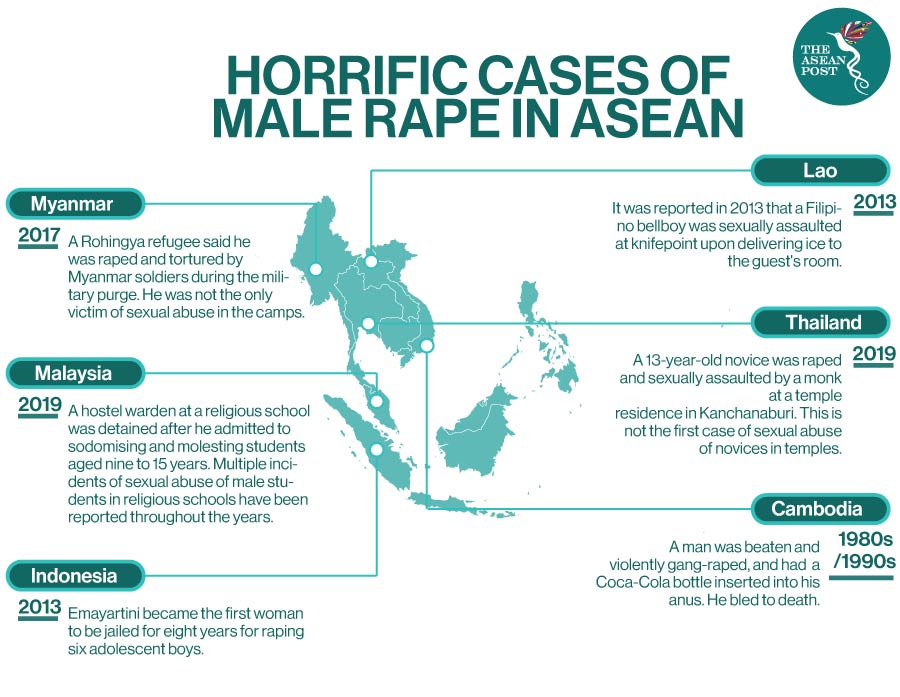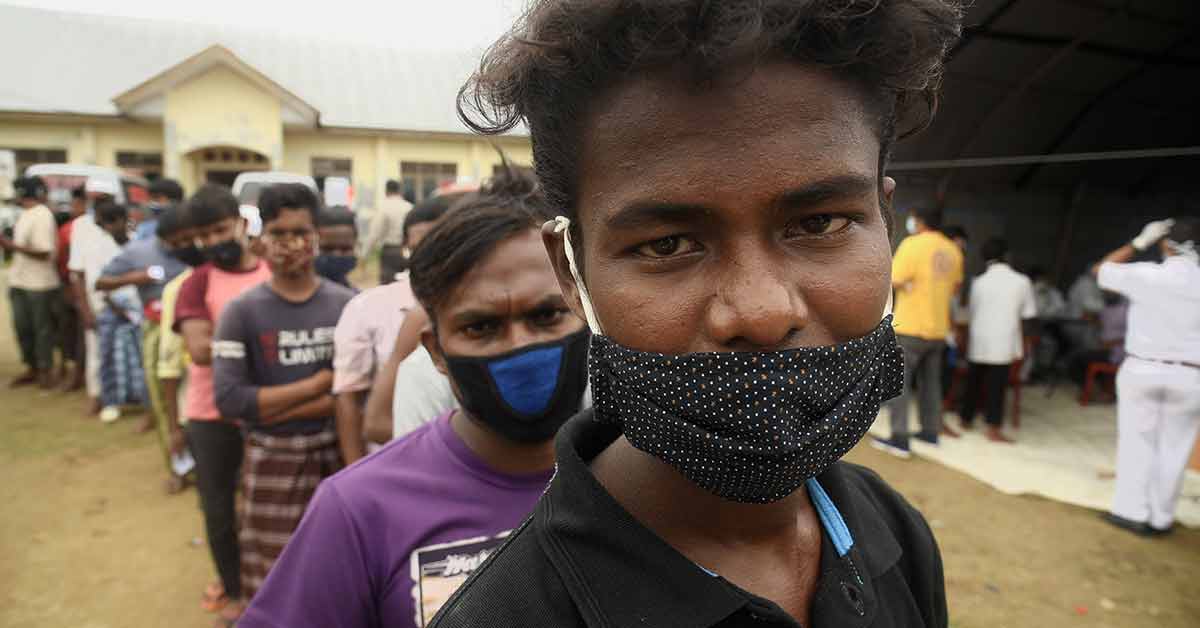Rape, sexual abuse and harassment are typically seen as crimes committed against women. However, in recent years, some men and boys have come forward to admit that they have been victims of such violations as well.
In 2019, the world was horrified when it heard of Reynhard Sinaga, an Indonesian student who lived in Manchester, United Kingdom – said to be the most prolific rapist in British history. Reports said that he would wait for intoxicated men outside nightclubs and bars, lure victims into his apartment, then drug them until they passed out before raping them. Sinaga was sentenced to life imprisonment for his heinous crimes.
Many cases of male rape go unreported because of the stigma attached to it. The United States (US) Centres for Disease Control and Prevention (CDC) conducted a study from 2010 to 2012 and found that one in 17 men reported being forced to penetrate at some point in their lives. Among male victims who were raped by being penetrated, 86.5 percent reported that the perpetrators were male.
Official figures for the rape of males in some countries are hard to come by given the nature of the issue.
In some societies, it is considered unmanly for a man to cry, because the male stereotype depicts men as being able to protect themselves. This toxic masculinity only makes it worse for men who have been raped. Men are generally afraid to come forward as rape victims for fear of being perceived as weak or gay.
"The main reason that fewer men come forward is that people assume they should be invulnerable, they should fight back. They have allowed it – so they must be homosexual,” explained Dr Chris Dolan, director of The Refugee Law Project, an organisation that provides legal aid to asylum seekers and refugees in Uganda.
When women are assaulted, they are frequently asked about their attire and whether it was “inviting,” while male victims would be questioned about their sexual orientation and masculinity.
Taking Male Rape Seriously
Like everywhere else around the world, male rape is a taboo topic in Southeast Asia. It is especially stigmatised in conservative nations as homosexuality and male-on-male penetration is frowned upon and illegal in countries like Brunei, Indonesia and Malaysia.
Unfortunately, the rape of males does happen around the world with victims more often than not having to suffer in silence.
According to a 2018 report by the Women’s Refugee Commission (WRC), in a focus group discussion with 89 Rohingya men and boys, a third of them personally knew a Rohingya man or boy who had experienced conflict-related sexual assault in Myanmar.
Journalist Verena Hölzl writes in her article titled, “Male rape survivors go uncounted in Rohingya camps,” that stigma often prevents Rohingya men and boys from speaking up, with aid groups not asking the right questions to find out. This leaves humanitarian groups with limited data to plan a better response, and male survivors of sexual violence with little help.
Although no complete or updated data is available on male rape in other parts of Southeast Asia, there have been several infamous cases of male sexual abuse reported in the region.

According to Malaysian Medical Association (MMA) president, Dr N K S Tharmaseelan, male victims are often left to suffer alone. He added that “males can be more damaged by society's refusal or reluctance to accept their victimisation and that they must tough it out in silence.”
Despite the progress made in many countries by educating the public on consent and sexual assault, male rape is still not widely discussed or legally recognised. This makes it difficult for victims to talk about their traumatising experiences and to seek help.
However, light was shed on the issue when Singapore proposed a bill last year to expand the definition of rape so that men could also be considered as victims of rape and voyeurism. Male rape is also recognised as rape by sexual assault in the Philippines, which is penalised by imprisonment of between six to 12 years.
The conversation surrounding male rape needs to be amplified in Southeast Asia, so that victims can receive full support and aid without feeling shame or guilt. While girls are often advised to be careful of potential predators and rapists, boys are rarely given any advice or warning about the many “Sinagas” out there waiting to prey on them.
Related Articles:
